To judge by reports on the internet, the Day in Remembrance of the Victims of Political Repression was not commemorated at the surviving memorial in Vladimir yesterday. Instead, the governor broadcast a sombre speech to the Vladimir Region; his words were illustrated by a monument in Siberia (Irkutsk).
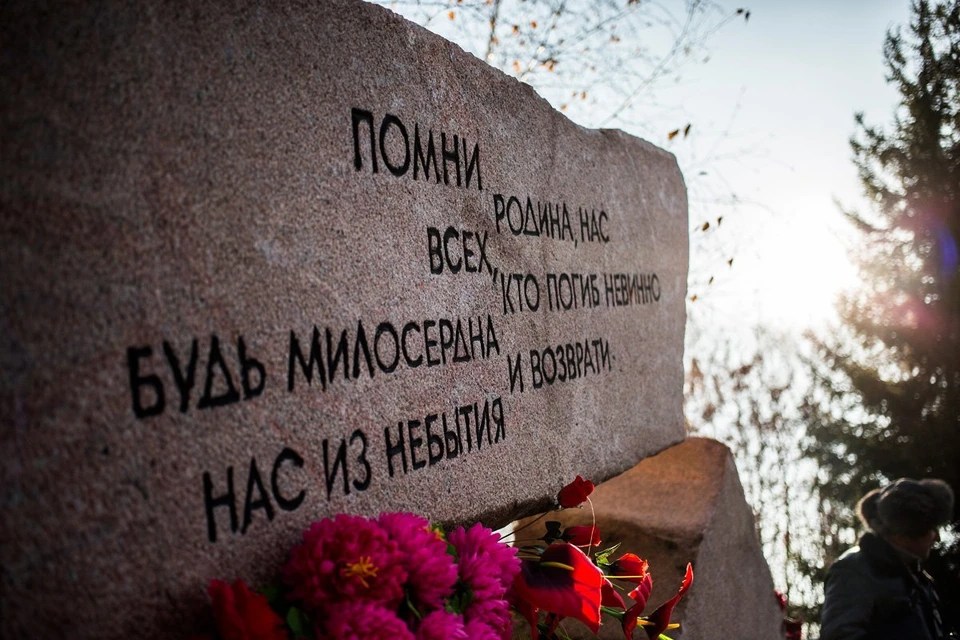
“Remember us all, O Motherland, innocent victims. Be merciful and bring us back from oblivion” (central monument at Pivovarikha)
A brave individual went to the site of Vladimir’s other recently dismantled memorial and read out the names of Dolgoruky, Shtepitsky, Laidoner and Jankowski as part of the 12-hour online marathon “Restoring the Names” (8.22 minute).
The governor’s counterparts in other regions also dispensed with meetings and voiced appropriate sentiments. The only large gatherings were prompted by the involvement of the Orthodox Church, which since 2021 has held services on 30 October to pray for all repressed Orthodox Christians (less of a protest, more of a prayer?)
The public reading of names was obstructed in Moscow, for the fourth year in a row; similar events were prohibited or cancelled in Tomsk and Novosibirsk, even when presented as a “Prayer of Remembrance”.
Targeting memorials
Over the past year the memorials erected in Russia have been targeted, especially those in memory of Soviet Poles, as part of the ongoing Memory War, a conflict between the narrative developed, by Memorial and others, and that officially favoured and imposed.
A cross near Vorkuta commemorating Polish inmates of the Gulag was demolished sometime over past months and the local police refused to investigate.
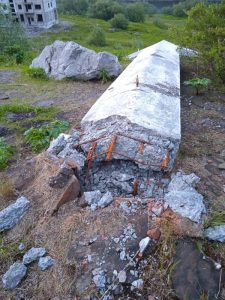
In July this year a substantial memorial at the Levashovo complex near St Petersburg disappeared. It was dedicated to the victims of the NKVD’s “Polish operation” during the Great Terror.

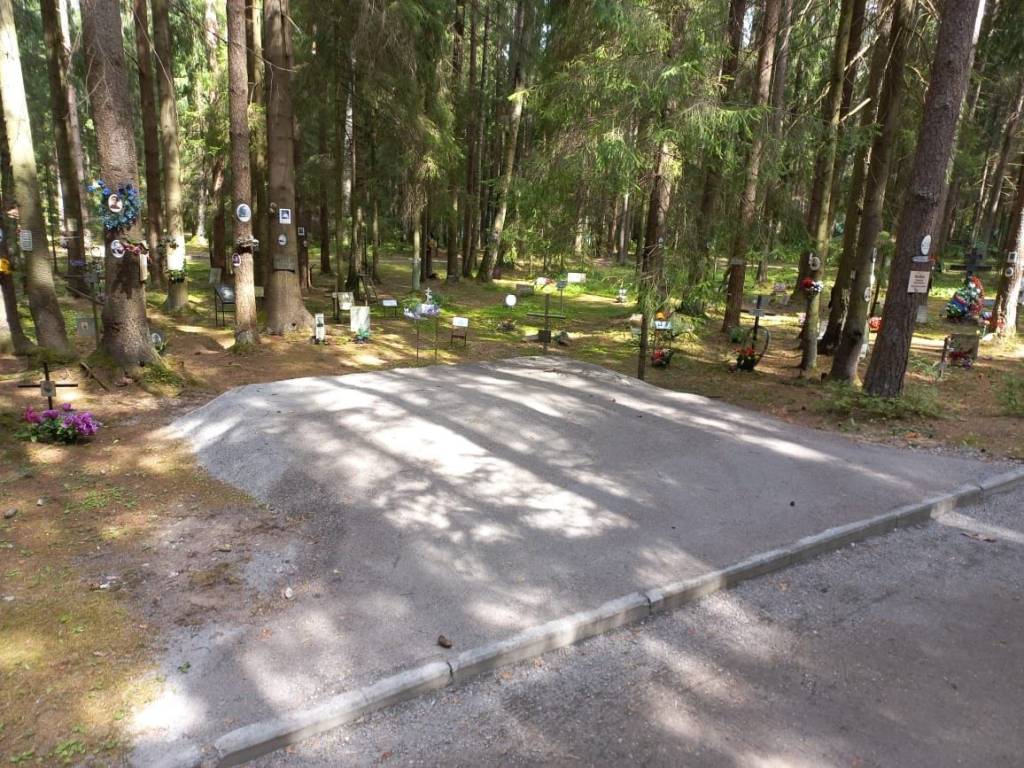
(photos, Anatoly Razumov)
On 30 October 2023, local activists with the support of the Polish consul defiantly erected a temporary metal structure in its place.
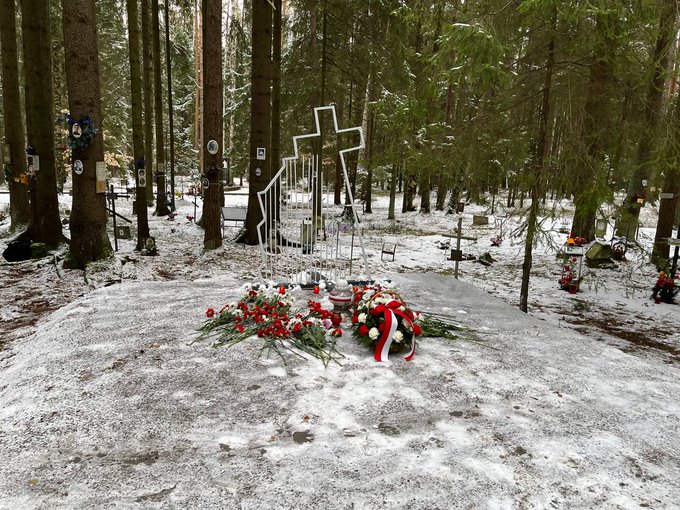
(Photo, Moscow Memorial)
An abdication of responsibility
One bizarre and unpleasant development this year was the appearance of busts of Stalin and other Soviet leaders at the Mednoe memorial complex near Tver.
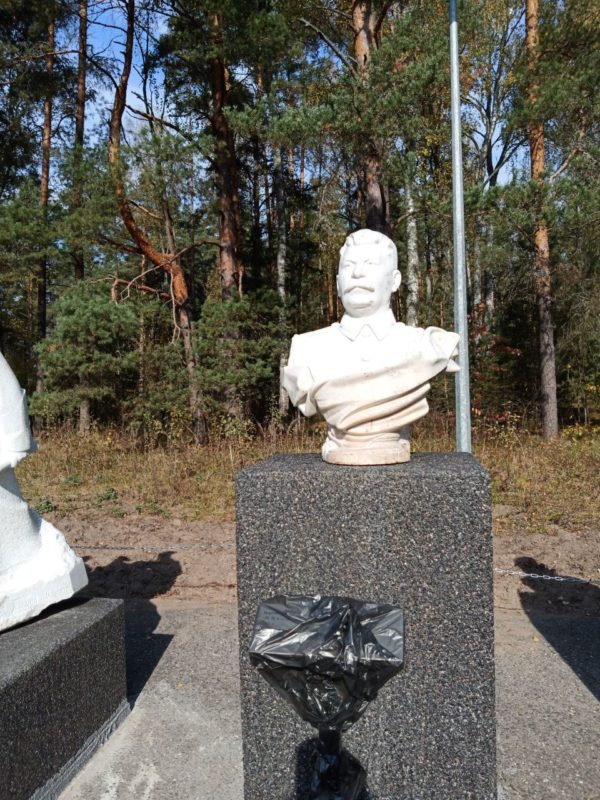

(Photos, Dmitry Karsupov)
Challenged to explain this innovation, the director of the complex pinpointed a weakness of the National Tragedy narrative, its failure to explain how and why millions suffered: “People did not repress themselves, did they?” Yet it is unlikely that these leaders appeared in this form at Mednoe, merely to take responsibility for the mass crimes of the Soviet era.
On the contrary, those who organised the Red Terror of the Civil War, “dekulakisation”, the voracious Gulag, the Great Terror and the mass murder of imprisoned Poles in 1940 were publicly presented in such a way at Mednoe, it seems, as to complete a process begun three years earlier. In 2020 two commemorative plaques were removed in Tver from the building where the NKVD tortured and shot hundreds of Soviet citizens and Polish prisoners.